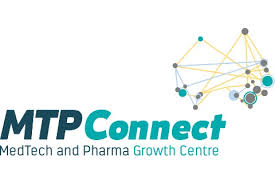
Posted: 27 February 2024
A new report published today shows MTPConnect’s Targeted Translation Research Accelerator (TTRA) program for diabetes and cardiovascular disease is already delivering benefits and novel health solutions for Australian patients and the health sector – just over halfway through its duration.
The $47 million TTRA program, an initiative of the Medical Research Future Fund (MRFF), was established by MTPConnect in 2020 to support translational research for the development of novel products and solutions for diabetes and cardiovascular disease – leading causes of death and disability in Australia.
The report, ‘Transforming health outcomes for diabetes and cardiovascular disease in Australia – Interim report on impacts of the first Targeted Translation Research Accelerator’, captures the achievements to date of the two national Research Centres established – the Australian Centre for Accelerating Diabetes Innovations (ACADI) and the Australian Stroke and Heart Research Accelerator (ASHRA) – and the 22 individual Research Projects funded, which have been collectively awarded $38.3 million in competitive funding.
MTPConnect CEO, Stuart Dignam, says the TTRA program was designed to ‘do research differently’ by addressing sector- and community-identified priorities, breaking down silos, enhancing collaborative gain and embedding translation, commercialisation and implementation of research outcomes as a natural course of activity in Australia.
“While the TTRA program is still in its infancy, tangible impacts and economic growth are already being delivered with 46 new products, solutions and technologies now progressing towards translation, three new spin-out companies formed, 17 pre-clinical and clinical trials commenced and 459 trial participants recruited,” Mr Dignam said.
“Innovations supported by our diabetes and cardiovascular disease accelerator include an oral insulin drug delivery platform, a total artificial heart controller, antithrombotic therapies for better stroke treatment, technology to detect unstable coronary plaques, as well as the world’s first national helpline providing mental health support via telehealth directly to adults with diabetes and cardiovascular disease.
“With such strong early impacts, the TTRA program is already delivering substantial return on investment and the foundations for yet more success in the coming years have been set as this cohort of Research Centres and innovative projects continue to mature,” he said.
TTRA Expert Advisory Board Chair, Emeritus Professor Ian Frazer AC FRS, highlighted the vision of the TTRA program is to build new capacity to solve the big challenges posed by diabetes and cardiovascular disease and their complications.
“This is a new approach to medical research in Australia, leveraging the existing strengths around the country and building a culture of collaboration and partnership across academic institutions, industry, investor groups, clinical and health networks and advocacy bodies,” said Emeritus Professor Frazer.
“This will ensure collaborative gain is realised and products and solutions are brought into clinical practice faster, resulting in positive health impacts.
“To date, the program has truly accelerated innovations due, in part, to the substantial support mechanism provided by MTPConnect and its program partners, in addition to the funding,” he said.
Summing up, Mr Dignam added that the government’s MRFF investment is a catalyst for accelerating outstanding results that will change the lives of people living with diabetes and cardiovascular disease.
“Our TTRA program nurtures the translation of innovative products and solutions for the prevention, diagnosis, treatment and management of diabetes and cardiovascular disease and their complications,” he said.
“It funds innovations across behavioural interventions, digital health, health services innovations, medical devices and therapeutics and specifically supports projects led by First Nations researchers that will deliver benefits for Aboriginal and Torres Strait Islander health and wellbeing.
“Having passed the program’s halfway mark, we’re excited to see what else TTRA can achieve to improve the lives of those living with diabetes and cardiovascular disease.”
TTRA’s program partners include ANDHealth, AusHSI, The Lowitja Institute, Medical Device Partnering Program and UniQuest.



